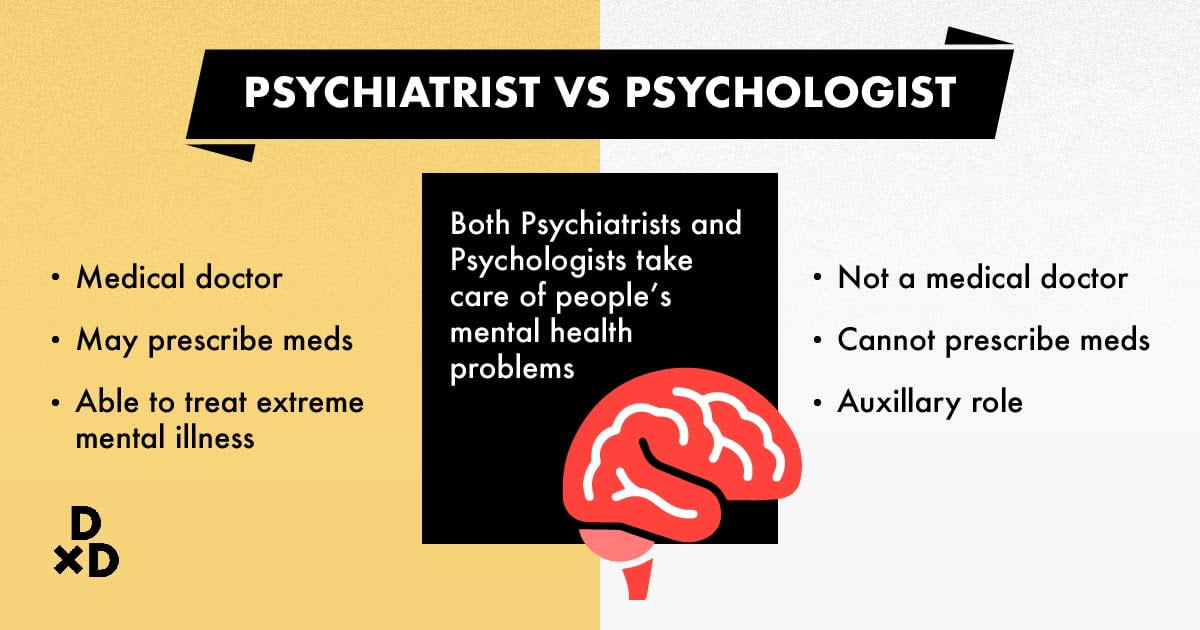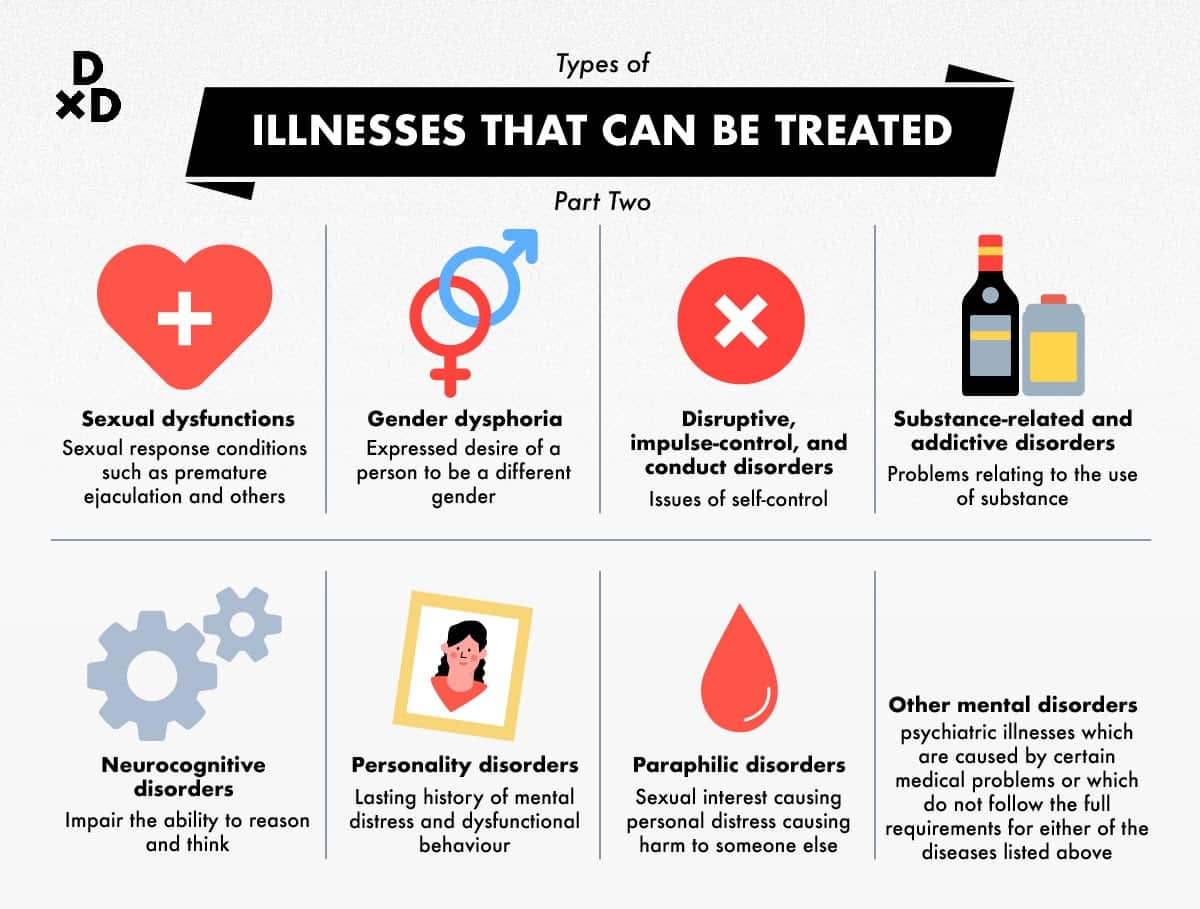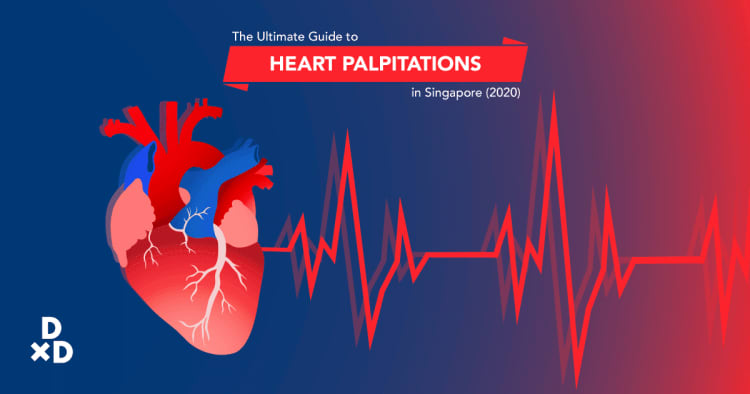There's no life without obstacles. However, there are a few emotional events that may be so overbearing that it can feel difficult to move on. Whether it's the loss of a loved one or an intense feeling of anxiety, it's crucial that you realize that you have support.
One such support is that you can visit a Psychiatrist. Doing so may be one of the first and most important steps to resolving your problems.
As a psychiatrist, I was head of the psychiatry department in SGH from 2005-2015.
I've given over 100 talks to inform the public about mental health conditions and have seen a wide range of patients, many whom are afraid of being forcibly admitted to IMH.
Related: Can Your Doctor Forcibly Hospitalise You In IMH? (Yes, They Can)
I've decided to write this article to guide you through seeing a psychiatrist for the first time.
What is a Psychiatrist?
A psychiatrist is defined as a medical doctor who has undergone further training to become a mental health specialist [1].
Psychiatrists are trained to assess the mental as well as physical aspects of psychological issues.
I make a diagnosis and work with you to develop a treatment and rehabilitation management plan. Psychiatrists offer:
- Psychiatric treatment
- Prescribe drugs
- Perform treatments like electroconvulsive therapy.
What I can do:
- Place urgent care for a sudden episode of mental illness
- Support you to maintain long term mental health
- Provide advice on lifestyle changes
- Work with you, or with your partner, relatives or carers
- Provide other doctors and health providers with second thoughts and suggestions
- Refer to other health care professional
- Admit you to a hospital if necessary.
What kind of training do Psychiatrists in Singapore go through?
Psychiatrists in Singapore are medical doctors who received specialized qualifications for accurate diagnosis and treatment of mental disorders through postgraduate clinical residency programmes.
Psychiatrists in Singapore are also trained locally, familiar with the Singapore mental health system, are supervised by the Ministry of Health.
They have at least a Master's degree in Medicine (M.Med (Psychiatry)) and a Bachelor's degree in Medicine, Bachelor's degree in Surgery (M.B.B.S.).
The average length of a psychiatrist's training and residency during medical school is about 11 and 13 years.

What is the difference between Psychiatrists and Psychologists in Singapore?
The differences between a psychiatrist and a psychologist are confusing to many people.
Both are health care practitioners who can take care of people with mental health problems and have gone through years of experience and training.
The biggest difference is that a psychiatrist has qualified as a medical doctor and may prescribe medication. A psychologist is not a medical doctor, and cannot prescribe medication.
Both can provide for patients with moderate to minor disorders.
Psychiatrists also treat patients with extreme mental illnesses, such as schizophrenia, and a psychologist may play an auxiliary role in their care.
Psychiatrists operate primarily in:
- Hospitals
- Clinics
- Community mental health facilities
- Private practice
Related: How do I know whether I should seek help from a psychiatrist or psychologist?
When should I see a Psychiatrist in Singapore?
You may need to see a psychiatrist if:
- Your mental health condition is complex
- If you have suicidal thoughts or intentions included
- You need a prescription that can only be administered by a psychiatrist
- Your condition does not respond to your GP’s (family doctor) prescribed medication.
Mental health conditions can have serious consequences for your physical health, such as heart disease. It is best not to delay seeing a professional.

Do Psychiatrists perform counselling and talking therapy in Singapore?
Psychiatrists can perform counselling and talking therapy in Singapore.
However, many psychiatrists choose to focus on the medical side of mental health only and will refer you to other allied mental health professionals for talk therapy.
Examples of such professionals include psychologists or psychotherapists.
How do Psychiatrists diagnose Mental illness in Singapore?
The steps involved in getting a diagnosis [2]:
- Medical history
- A physical examination and possibly laboratory testing to exclude other possible causes for your condition
- A psychological evaluation. You will answer questions about your emotions, feelings and behaviours.
We often refer to a diagnostic manual called the DSM V (“DSM Five”) to guide us in determining what condition(s) you might have.
Related: Will a mental health record prevent me from working as a doctor in Singapore?
Are there Psychiatrists that specialise in Anxiety and Depression?
Anxiety and depressive disorders are the most common conditions that psychiatrists see. Rest assured that you will get treatment for either of these two conditions by any psychiatrist you see.
In more complex cases, if more specialised treatment is required, your psychiatrist can refer you to another that specialises mainly in depression, anxiety, and similar conditions.
1. Anxiety disorders
Panic attacks, post-traumatic stress disorder and obsessive-compulsive disorder are classified as anxiety disorders [5].
Anxiety is characterized by the anticipation and excessive worry about future danger or misfortune. It may involve actions targeted at avoiding situations that cause anxiety.
2. Depressive disorders
Depression is a brain disorder. Depression typically occurs between 15 and 30 years of age and is much more frequent in women.
Women may also experience postpartum depression after a baby is born. In winter, some may experience seasonal affective disorder. A symptom of bipolar disorder is depression [4].
Related:
How is anxiety and depression diagnosed in Singapore?
A Psychiatrist Explains How Depression Is Diagnosed And Treated In Singapore
What common illnesses do Psychiatrists in Singapore see?
As a psychiatrist in Singapore, I see many different mental health conditions throughout the day.
You might be surprised just how many different types of conditions there are! Here's a list of some of the illnesses we psychiatrists see!
- Bipolar and related disorders
- Personality disorders
- Trauma and stress-related disorders
- Schizophrenia spectrum and other psychotic disorders
- Obsessive-compulsive and related disorders
- Dissociative disorders
- Substance-related and addictive disorders
- Somatic symptoms and related disorders
Bipolar and related disorders
A mental illness that triggers irregular changes in mood, energy, patterns of activity, concentration and the capacity to accomplish everyday tasks [3].
Personality disorders
A personality disorder includes a lasting history of mental distress and dysfunctional behaviour, creating difficulties with your life and relationships. Symptoms include bipolar, authoritarian, and antisocial personality traits.
Trauma and stress-related disorders
Those are transition problems where a person has difficulty dealing with traumatic life experience. A classic example is post-traumatic stress disorder (PTSD).
Schizophrenia spectrum and other psychotic disorders
These are illnesses that lead to detachment from reality — like delusions, hallucinations, and disorganized speech and thought.
Schizophrenia is the most common example, though other types of illnesses may also be associated with detachment from reality.
Obsessive-compulsive and related disorders
These problems include fears, obsessions and repetitive thoughts and acts. Examples include obsessive-compulsive disorder, hair-pulling disorder (trichotillomania), and hoarding disorder.
Dissociative disorders
These are disorders which disturb your sense of self, such as dissociative identity disorder and dissociative amnesia.
Substance-related and addictive disorders
These include problems relating to the use of sugar, alcohol, cigarettes and drugs. This class contains gambling problems as well.
Somatic symptoms and related disorders
Somatic symptom disorder (SSD) occurs when a person has severe, exaggerated physical symptom anxiety.
The person has such extreme symptom-related emotions, feelings, and actions that they think they can't handle any everyday activities.
They might believe normal medical conditions are life-threatening. The fear cannot improve despite the health care provider's standard test findings and reassurance [6].
Struggling with addiction issues and need a helping hand? Trybe is a social service intended for youths seeking to overcome their addiction and mental health adversities. Find out more with Trybe's intervention, rehabilitation and reintegration programmes that provide differing support levels for youths-at-risk.
What are the un-common illnesses do Psychiatrists in Singapore see?
- Feeding and eating disorders
- Elimination disorders
- Sleep-Wake disorders
- Sexual dysfunctions
- Gender dysphoria
- Disruptive, impulse-control, and conduct disorders
- Neurocognitive disorders
Feeding and eating disorders
These disorders include eating disorders that have an impact on nutrition and health, such as anorexia nervosa and binge-eating disorder.
Elimination disorders
These conditions include the inappropriate production of urine or faeces by mistake or purpose. An example is bed-wetting (enuresis).
Sleep-Wake disorders
These are disorders of sleep severe enough to require clinical attention, such as insomnia, sleep apnea and restless legs syndrome.
Sexual dysfunctions
That include sexual response conditions such as premature ejaculation and female orgasmic disorder.
Gender dysphoria
This refers to the distress that follows the expressed desire of a person to be a different gender.
Disruptive, impulse-control, and conduct disorders
These conditions have issues of self-control of the impulses and behaviours, such as kleptomania or intermittent explosive disorder.
Neurocognitive disorders
Neurocognitive conditions impair the ability to reason and think. These memory difficulties acquired (rather than developmental) include delirium, as well as neurocognitive disorders caused by illnesses or diseases such as traumatic brain injuries or Alzheimer's.
Are there any rare disorders that Psychiatrists in Singapore see?
Paraphilic disorders
These disorders include sexual interest causing personal distress or impairment or causing potential or actual harm to someone else. Examples of this include sexual sadism, voyeuristic abuse, and pedophilic disease.
Neurodevelopmental disorders
This class covers a wide variety of concerns that usually originate in childhood or adolescence, even before the child starts school. Examples include disorders on the autism spectrum, attention-deficit/hyperactivity disorder (ADHD), and learning disorders.
Other Mental disorders
This class includes psychiatric illnesses which are caused by certain medical problems or which do not follow the full requirements for either of the diseases listed above.

Where can I collect Antidepressants and Anxiety medications in Singapore?
If you go to a private psychiatrist, then you can buy your medication at their clinic once it’s prescribed. These medications will not be subsidised.
If you go to a GP and are referred to a psychiatrist, you can collect prescription-only and over-the-counter (OTC) medication at any hospital pharmacies. These medications will be subsidised.
If you see a private psychiatrist, you can also ask for a prescription which you can bring to a polyclinic GP. You can then ask the GP for the same medication at the pharmacy that you can buy at a subsidised rate.
What are the most effective non-medical treatments a Psychiatrist in Singapore can administer?
I understand that as a patient you may not want to take medication. You may have heard of the side effects some of these medications have, or you may wish to try non-medical methods until you have exhausted them before going for medicine.
While some conditions might require medication, others might just need you to make some changes in thinking or daily behaviour. You can achieve this through psychological treatment.
Sometimes psychological treatment is called 'psychotherapy' or 'talking therapy'. This is a term describing a number of treatment approaches aimed at helping a person recognise and change problematic emotions, thoughts, and behaviour [7].
Often psychotherapy is carried out in a community environment between a licensed and trained mental health care professional and a patient meeting one on one or with other patients.
What are the most effective medical treatments can Psychiatrists give?
Medicines can help treat various mental disorders and conditions [8].
Medications used to treat mental illness are known as psychotropics. These are medications that operate on the nervous system and on the brain. While psychiatric treatments do not heal mental disease, symptoms can sometimes improve significantly.
Often, psychiatric drugs may help make other treatments more successful, such as psychotherapy. The right drugs will focus on your personal condition and how the body reacts to the drug.
Some of the most commonly used classes of psychiatric prescription medications including:
Antidepressants
Antidepressants are medications used to relieve depression. Some antidepressants are also used to treat conditions other than depression and psychological disorders, including anxiety [9].
They will help boost symptoms including sadness, hopelessness, loss of power, concentrating problems and lack of interest in activities. Antidepressants are not addictive so they do not induce addictions.
Anti-anxiety medications
Anxiety is a common reaction to threatening or frightening situations [10] so that these drugs are known as generalized anxiety disorder or panic disorder.
These will also help in reducing agitation and insomnia. Usually, long-term anti-anxiety medications are antidepressants which also work for anxiety.
Fast-acting anti-anxiety medications assist with short-term relaxation but they do have the ability to induce dependency, and they should better be reserved for short-term use.
Mood-stabilising medications
The most commonly used pharmacological treatments for bipolar disorder are mood-stabilizing medications, a condition marked by frequent mania and depression [11].
Mood stabilisers are also used for treating depression with antidepressants.
Antipsychotic medications
Antipsychotic medications, for conditions such as schizophrenia, are usually used to treat psychiatric illnesses. Antipsychotic drugs can also be used to combat bipolar conditions or to treat depression with antidepressants.
What if both non-medical and medical treatments don't work?
Brain stimulation therapies
If psychotherapy and medical treatments don't work, then I turn to brain stimulation therapies
Brain stimulation therapies have proven success in treating depression and treatment-resistant depression (TRD) [12].
Brain stimulation therapies involve electroconvulsive therapy, repeated electrical transcranial stimulation, deep brain stimulation and activation of the nerve vagus.
Be sure you understand all the risks and benefits of any treatment that is prescribed.
What should I expect before visiting a Psychiatrist in Singapore?
Your first psychiatrist appointment will normally last 1–1.5 hours. Your psychiatrist will:
- Listen to your concerns and your symptoms
- Ask questions about your health
- Ask for family history
- Take your blood pressure and perform a simple physical check-up if necessary
- Ask to fill in a questionnaire.
The long appointment gives the psychiatrist time to listen to you and hear your story.
Your psychiatrist may also speak to other health professionals or may ask permission to speak with other family members. They may prescribe a few more tests to help them understand what is happening.
Where can I see a Psychiatrist in Singapore?
When you want to seek a psychiatrist in Singapore, you should either go to a public / restructured clinic such as the Institute of Mental Health or go to a private psychiatric clinic.
Singaporeans and permanent residents are eligible for subsidized treatment in public hospitals but to access the subsidized cost, you would need to receive a letter of referral from a polyclinic first.
If you want to see a private psychiatrist, you do not need a referral letter unless your health policy needs you to get one from a General Practitioners council.
When you first see them, the family doctor or prescribing specialist might sometimes provide you with a referral note.
A psychiatric clinic in Singapore is like every other medical specialist clinic. Many hospitals go through a scheduling program to make sure you're served in a timely fashion and don't have to wait in the office.
Related: A Depressed Patient’s Journey Through Singapore's Hospitals Part 1 (SGH and Mt Elizabeth Hospital)
How do I find the best Psychiatrist in Singapore?
- Review sites
- Get referrals
- Survey the credentials of the psychiatrist
- Consider the experience of the psychiatrist
- Gender might matter
Review sites
There aren't many dedicated review sites for doctors in Singapore. Human is a rare aggregator medical site where you can find a complete list of psychiatrists compiled together.
Other alternatives include 'Mommy blogs' like Singapore Motherhood Forum to look for doctor reviews.
However, these websites are not geared toward medical health and are geared for parents who have children. You might not get the information you need, or you may have to wait a long time for a relevant answer if you ask.
You can also go for forums like Hardware Zone, but again these are not dedicated medical sites, so it will be hard to find and compare psychiatrist reviews.
Get Referrals
Start with a list of potential psychiatrists from your primary care doctor, healthcare clinic, or insurance company.
You can add to this list by asking for feedback from relatives, friends and other healthcare providers.
Survey the credentials of the psychiatrist
Certification by the board is one of the most important factors to consider when choosing a psychiatrist. It tells you that the physician has the training, skills, and experience necessary to provide psychiatric healthcare.
Look for a psychiatrist who is a board-certified in child and adolescent psychology if you are looking for your child's doctors.
Consider the experience of psychiatrist
Experience matters when you are having mental health issues. The better your results are likely to be, the more experience a psychiatrist has with a condition or procedure. Ask just how many patients the psychiatrist has diagnosed for your particular illness.
Gender might matter
It is important to feel relaxed with your psychiatrist, as you need to share personal details freely. Your own identity can be a major concern when it comes to mental health.
Psychiatrists are getting more conscious of treating both women and men and supporting transgender or nonbinary individuals.
Also Read: The Best Tips From A Singaporean Psychiatrist On How To Take Care Of Your Mental Health
How much does it cost to see a Public or Private Psychiatrist in Singapore?
You can enjoy a subsidized rate at a public hospital at a reasonable cost of about $45 - 60 a session, but you might have to wait a long time before you get an appointment.
It is expensive to have a doctor from private practice, with each appointment ranging from $150 - $400 /hour.
Subsidised treatment to see a psychiatrist
Private practice to see a psychiatrist
$45-$60/session
$150-$400/hour
Can you claim Medisave for treatment with a Psychiatrist?
MediSave can be used for inpatient psychiatric treatment. It is subject to a $150/day withdrawal limit, which is limited to $5,000 a year.
Medisave Withdrawal/day for psychiatry
Medisave Withdrawal limit/year for psychiatry
$150
$5000
Schizophrenia, severe depression, bipolar disorder, anxiety, and dementia outpatient treatments are subject to 15% co-payment by the patient per claim.
Conditions
Cash payment required
- Schizophrenia
- Severe depression
- Bipolar disorder
- Anxiety
- Dementia outpatient treatments
Subject to 15% co-payment by the patient/claim (Pay 15% cash before you can use Medisave)
That means you have to cash 15% of the hospital bill before you can use MediSave for your ambulatory services. Also, note that payment amounts for Medisave accounts cannot exceed $500 per year.
Also Read: How do I get help for mental illness in Singapore if I can't afford it?
What are some useful resources for Mental Health support in Singapore?
Here is a list of numbers and organisations you can reach out to for support. Your information will be kept strictly confidential:
24-hour emergency Helpline: +65 6389 2222
National Problem Gambling (Mon-Sun, including Public Holidays, 8 am-11 pm): 1800-6-668-668
Outpatient Appointment (Mon-Fri, 8am-6pm): +65 6389 2200
National CARE Hotline: 1800-202-6868
24-hour Samaritans of Singapore Hotline: 1800-221-4444
TOUCHline Counselling Hotline (Mon-Fri, 9 am-6 pm): 1800-377-2252
Community Psychology Hub Online Counselling Platform (For difficulties in family relationships at home)
Silver Ribbon (Singapore) (Mon-Fri, 9 am-5 pm): +65 6386 1928
Also read: The Complete List Of Resources To Help Someone In Singapore With Depression (2021)
Conclusion
So we have discussed what a psychiatrist does. If you think something is wrong with your mental health, why don’t you book an appointment with a psychiatrist right away?
You can talk about your problems with a psychiatrist, and of course, they will listen to you. It is one way a psychiatrist can diagnose your issues.
Stop keeping things to yourself, telling people will make you more relaxed and you will not feel alone!
Dr Ng Beng Yeong obtained his medical degree and underwent postgraduate training in Psychiatry in Singapore. He furthered his studies in Organic Psychiatry and Neuropsychiatry under a scholarship at the Maudsley Hospital, UK.
Read more of Dr Ng Beng Yeong's QnA here.













